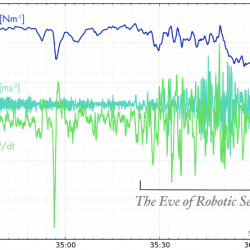Google Changes Algorithm to Display Less Sexual Content for the Query ‘Lesbian’
Busting views that conflate queer women’s sexuality with X-rated entertainment.

In one of her articles for The Lesbian Blog, “The Oversexualization of Lesbians,” author Emily Watson wrote: “I should not see images of two half-naked women passionately kissing when I Google ‘lesbians.”
It’s well-known that lesbianism is the most fetishized sexual orientation on the Internet: according to PornHub Insights [NSFW], in 2018 “lesbian” has been the most searched term on the popular tube site.
Obviously, the problem is that the adult industry represents “girl-on-girl action” in an unrealistic way, cutting out many aspects of a real lesbian relationship in order to fulfill the fantasies of its main audience: heterosexual men.
That said, it doesn’t surprise that a quick search of the word “lesbian” on Google brings to hundreds of adult sites showing explicit content.
Luckily, this issue has been addressed by Fanchon Mayaudon-Nehlig, an expert communication consultant. After her wife confessed that she felt uncomfortable saying the word “lesbian” in public, she decided to take action to reduce the sexualization of gay women on the Internet.
In April 2019, Mayaudon-Nehlig launched the hashtag #SEOlesbienne and the Twitter account @SEO_lesbienne, to have her voice heard by the search engine giant. The communication consultant explained to PinkNews.co.uk that she and her wife “knew the change was possible as Google had previously changed the algorithm for the French word for ‘cat,’ after images of vaginas appeared when users searched for ‘chatte’”
The SEO Lesbienne movement attracted the attention of mainstream media very soon. For example, Mayaudon-Nehlig has been supported by the French news website Numerama very early in her fight.
The issues with Facebook
Apparently, Google is not the only platform who has problems with the word “lesbian.” Since the launch of SEO Lesbienne, the movement’s Twitter fans have complained about how this term caused their emails to be categorized as spam, and it has even been reported that emails from the staff of the European Lesbian Conference couldn’t reach their recipients’ Gmail inboxes.
However, Facebook has posed the biggest challenges for the lesbian movement. In April, SEO Lesbienne tried to create a page on the popular social network, only to discover that using the term “lesbienne” in their username was not allowed. The movement created a page using “SEOLezbienne” as their username, but they protested on their Twitter account about what happened.
On 29 April 2019, Numerama published an article about how Facebook censored Mayaudon-Nehlig’s movement, giving even more visibility to her efforts. On the same day, SEO Lesbienne announced with a Tweet that the “z” in their Facebook username had been removed successfully.
The victory against Google
On 18 July 2019, SEO Lesbienne published a great announcement on their Facebook page.
“We won our fight”, wrote the movement’s staff, “the term #lesbian is now better referenced on Google. Adult material has been replaced by informative and fun content! This is a great joy for all lesbian teens and women.”
However, they said that there had been no official communication from Google. SEO Lesbienne also thanked all the SEO experts that joined the movement, as well as the media outlets that gave them visibility.
At the date of today, the first page of the search results for the term “lesbienne” shows a related Instagram hashtag, some LGBT novels on Amazon and some educational videos on YouTube, along with the Facebook page of the “Journée de Visibilité Lesbienne 2019.
The same happens if you Google “lesbian” in English: you’ll see the related Wikipedia page, along with some educational articles and YouTube videos. The only sex-related content that appears on the first SERP page is an article from Cosmopolitan about lesbian sex positions.
This victory of the LGBT community against the tech giant attracted the attention of media outlets from all around the world: SEO Lesbienne has been recently featured on HuffPost Brazil, The Independent, Vogue Germany and Cosmopolitan.
On August 17, the movement wrote in a Facebook post: “We have a reason to celebrate, but the goal has not yet been reached. There are fewer pornos, but still a lot of sexualised content.”
We hope that the change in the Google algorithm inspires other Internet and social media companies to stop associating the word “lesbian” to explicit content or to censor it. This way, the new generations will hopefully stop perceiving this word as something negative, and be able to embrace their sexual orientation with pride.
Image Sources: Joe Ciciarelli
Leave a reply
You must be logged in to post a comment.

















